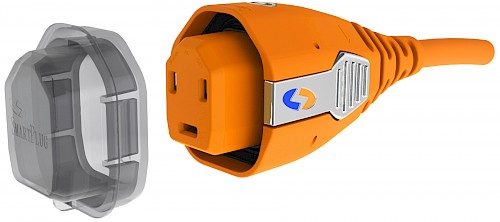
Winter Maintenance For Your AC System
Your electrical system can be adversely affected if it’s not maintained during the winter months. These are two important items to keep in mind: have a well-maintained shore-side connection and ensure your inverter is not left on standby. We will look at each of these in detail and offer some simple tips to keep your electrical system safe during the colder weather.
SHORE-SIDE CONNECTION
Most boaters keep a heater on continuously throughout the colder months, but this puts a heavy strain on your AC electrical system. Your shore-side connection must be connected securely, and be free of dirt and corrosion. At full output, a typical ceramic heater draws approximately 12 amps; therefore, it takes only two heaters to almost max out your 30-amp shore-side receptacle. In comparison, during the warmer months most boats rarely exceed a 10-amp draw from their appliances (such as battery chargers); the difference is substantial. With such a high draw from your heaters, your AC shore-side receptacle needs to be in good condition so it can sustain the high current rate. With high current and a poor connection, overheating is quite likely, and this will cause a “snowball effect.” As heat increases, so does resistance, resulting in more overheating. Keep in mind that ? res do not start with flames but with heat. A bad connection can easily lead to a dangerous situation.
TIP 1
To avoid issues caused by overheating and to prevent damage to your electrical system, we strongly recommend you inspect your AC shore-side receptacle regularly. A few things to look for are dirt, corrosion and a loose ?fit.
TIP 2
Use the SmartPlug shore power connector on board your boat. There are three reasons for doing this:
- SmartPlug’s straight pin connections were designed with 20 times more surface area. This means less resistance and less chance of overheating.
- The thermostat integrated into the power inlet will automatically cut the connection in the unlikely event that the connector becomes too hot. Once things cool back down, the SmartPlug turns back on.
- Some insurance companies offer onetime credits for using products such as the SmartPlug.
PITFALLS OF LEAVING YOUR INVERTER ON STANDBY
Many inverters come with a standby feature for convenience, but using this during the colder months has its issues. While on standby mode, the inverter senses AC input and will start creating its own AC output the moment the AC input is lost. It is not uncommon for boats to experience an AC outage in the winter months due to bad weather, tripped breakers or accidentally disconnected shore-side connections. AC outlets powered through inverters may have many AC loads, including ceramic heaters, which are considered heavy oads. Therefore, in an AC outage, the inverter will be left to draw battery capacity to power these heavy loads, crippling the batteries within a few hours or less. This occurs far more often during the colder months when more boats in the marina are drawing power, and the likelihood of an AC outage is higher. Depleted batteries have many negative implications and cause a chain reaction—your bilge pumps will not work, alarms will not sound and depleted batteries will be damaged quickly due to the sulfating process.
TIP 3
Instead of leaving your inverter on standby mode and having heavy AC loads running on an inverter, it is best during the winter months to connect large AC loads to the shore-side power only. This will prevent damage to your batteries and the associated risks in the case of an AC outage.
During the winter months,
it is advised that you take the time to visit your boat frequently and ensure your shore-side connection has a tight fit and is free of dirt and corrosion. Check that your heaters are secure and clear of clutter and make sure your inverter is not in standby mode. If you do manage to get out on your boat, enjoy all the scenery that winter boating can offer.
About the author: Jeff Cote is tthe owner of Pacific Yacht Systems, a full service shop delivering marine electrical and navigation solutions for recreational boats. Visit their website and blog for info and articles on marine electrical systems, projects and more: www.pysystems.ca.
Related Content






 $797.93
$797.93 $554.83
$554.83
























